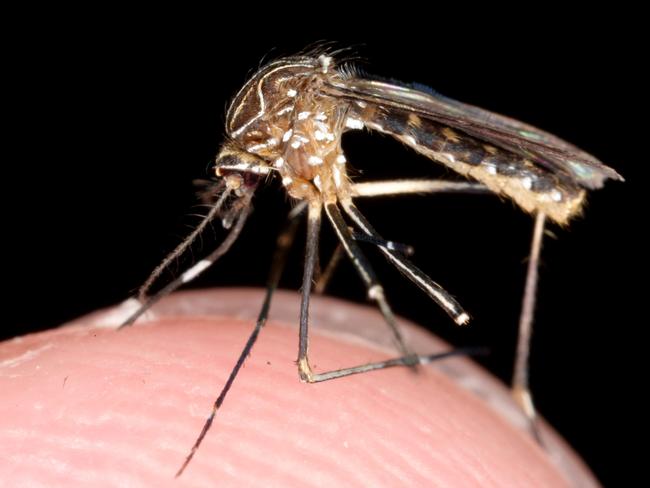SunPork CEO warns residents to be ‘incredibly diligent’ as Japanese encephalitis virus spreads
The company behind Swickers Bacon Factory in Kingaroy has warned residents to be “incredibly diligent” as receding floodwaters boost the spread of a rare mosquito-borne virus, with vaccinations for piggery staff to kick off next week.
South Burnett
Don't miss out on the headlines from South Burnett. Followed categories will be added to My News.
The CEO behind Swickers Bacon Factory in Kingaroy has warned residents to be “incredibly diligent” as receding floodwaters across the state risk exposure to the Japanese encephalitis virus, which has just been detected in Australia for the first time.
Vaccinations for piggery staff are set to start next week.
SunPork CEO Robert van Barneveld said the mosquito-borne virus was detected in numerous piggeries across the country, including a Suncorp-owned piggery in Goondiwindi, which will be prioritised in the vaccine rollout.
The virus has not been detected in the South Burnett, with the vaccination likely to made available to Swickers staff in coming weeks.
Unlike the Covid-19 jab, the existing Japanese encephalitis vaccine will not be made compulsory.
Dr Barneveld said it was important for flood-affected residents to take precautions to protect themselves from being bitten by mosquitoes.

He also emphasised the virus has no impact on the safety of pork.
“This virus is spread by mosquitoes. The pigs are an innocent bystanders,” Dr Barneveld said.
“It won’t have any impact on pork and we cannot overstate how seriously the health department will take this.”
The sunshine state recorded its first human case of the virus in more than two decades on Friday morning, as nine piggeries across Queensland, NSW and Victoria confirm infections.
The woman, aged in her 60s, was taken to a Brisbane hospital in a critical condition following a recent trip to regional southern Queensland.
“Given the recent flooding and the slow receding of some floodwaters, we are likely to see an increase in mosquito numbers in coming weeks,” a Queensland Health spokeswoman said.
“The best precaution against JEV infection is prevention, and people should take steps to prevent being bitten by mosquitoes.
“Measures to prevent mosquito bites include regularly applying insect repellent containing Diethyl Toluamide (Deet), Picaridin, or oil of lemon eucalyptus; wearing loose, light-coloured clothing to cover up arms, legs and feet; and using other insecticide-based mosquito control devices where possible when outside.
“Around your home, inspect for common mosquito breeding sites, clean up debris and make sure to empty, wipe out and store any outdoor containers in a dry place or dispose of them responsibly.
“It’s also important to ensure flyscreens are in good order so mosquitoes can’t enter your home.”

Most people who contract the virus will have no or mild symptoms including headaches or fever, however JEV can cause inflammation of the brain.
Children aged under five years of age and older people are at a higher risk of developing more severe illness.
A Department of Agriculture and Fisheries spokesman said pig and livestock owners should watch closely for symptoms in their animals, with pigs and horses most at risk.
Anyone who suspects JEV in livestock, report it to the 24-hour Emergency Animal Disease Hotline on 1800 675 888.





